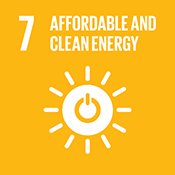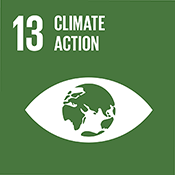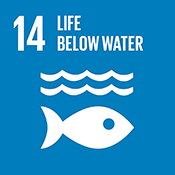How the OAG audits sustainable development
How the Office of the Auditor General of CanadaOAG audits sustainable development
The Office’s main contribution to sustainable development is its audit work and recommendations to federal and territorial departments, agencies, and Crown corporations.
The Office reviews the sustainable development strategies of individual organizations and of the federal government as a whole, audits the management of environmental issues and sustainable development, and oversees the environmental petitions process.
Recently, the Office has supported implementation of the United Nations’ 2030 Agenda through the following work:
- Performance audit reports of the Commissioner of the Environment and Sustainable Development consider Goal 7: Affordable and Clean Energy, Goal 13: Climate Action and Goal 14: Life Below Water.
- Performance audits reports to Northern Legislative Assemblies consider Goal 13: Climate Action.



Informing parliamentarians
On behalf of the Auditor General, the Commissioner of the Environment and Sustainable Development provides parliamentarians with objective, independent analysis and recommendations on the federal government’s efforts to protect the environment and foster sustainable development.
The Commissioner conducts performance audits, and is responsible for:
- monitoring the sustainable development strategies of federal departments;
- auditing the federal government’s management of environmental and sustainable development issues, and
- overseeing the environmental petitions process.

Monitoring the government’s sustainable development strategies

Sustainable development strategies set out goals, targets and actions to help the federal government advance sustainable development. They also support transparency and accountability to Parliament in this area. Well thought-out strategies and effective action to implement them, along with periodic progress reports that present a fair picture of progress, are fundamental to both the credibility and effectiveness of the strategies.
The OAG, through the Commissioner of the Environment and Sustainable Development (CESD), is involved in 3 ways in the government’s sustainable development strategies:
- Every 2 to 3 years, the CESD reviews the draft of the government’s next Federal Sustainable Development Strategy.
- Every 2 to 3 years, the CESD reviews the government’s progress report on the current Federal Sustainable Development Strategy.
- Every year, the CESD monitors and reports on how well selected departments and agencies are supporting, through their own sustainable development strategies, the achievement of the targets and goals set out in the government’s Federal Sustainable Development Strategy.
Auditing the government’s management of environmental and sustainable development issues
The Commissioner conducts audits of the federal government’s management of multiple environmental and sustainable development issues, from climate change and nuclear safety to biodiversity and fisheries. The nature of the specific audits to be selected will increasingly depend on their relationship to the united nationsUN Sustainable Development Goals. This work supports International Organization of Supreme Audit Institutions'sINTOSAI’s approach 2.
Supporting Goal 16: Peace, Justice and Strong Institutions
The Office supports Goal 16 by providing Parliament with objective, fact-based information and expert advice on government programs and activities, gathered through audits.
Parliamentarians use OAG reports to oversee government activities and hold the federal government to account for its handling of public funds.
The OAG conducts financial and performance audits of:
- the federal government, including some 100 departments and agencies, ranging from small boards to large, complex organizations whose activities extend across Canada and overseas;
- some 40 Crown corporations, such as the Canadian Broadcasting Corporation and the Royal Canadian Mint; and
- the governments of Nunavut, the Yukon, the Northwest Territories, and some 20 territorial corporations and agencies.
